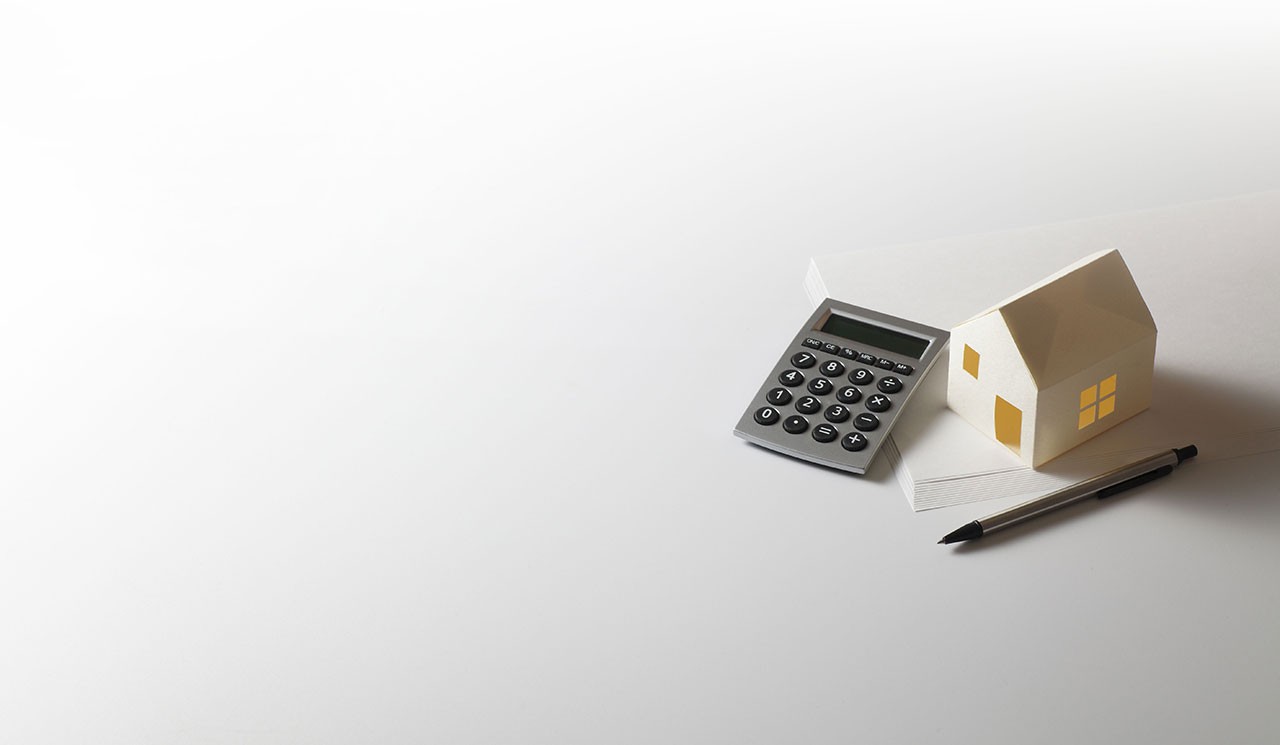Understanding tax deductions and credits for individuals
Introduction to Tax Deductions and Credits in Australia
Definition and Importance
Navigating tax time can often be daunting, but understanding tax deductions and credits can provide significant financial benefits. Tax deductions reduce your taxable income, which could lead to a smaller tax bill. These deductions can cover expenses necessary to earn your income, like work-related costs or even some education expenses. In Australia, these reductions can often be the difference between owing taxes and receiving a refund, making it crucial to know what you can claim.
But why are they so important? For starters, they help ensure you're only taxed on your real earnings. This means more money remains in your pocket, which is particularly helpful whether you're running a small business in Ipswich or managing your household budget. Additionally, being informed about your deductions ensures you're compliant with Australian tax laws while potentially boosting your financial well-being.
Difference Between Deductions and Credits
It's easy to mix up tax deductions with tax credits, but they function differently in your tax return. While deductions lower the income that your tax is calculated on, credits directly reduce the tax payable. Think of it this way: deductions decrease your taxable income, helping you fall into a lower tax bracket, while credits are more like a rebate on the tax you've already calculated.
For example, if your taxable income is high, deductions help bring that figure down, which can mean paying less tax overall. Credits, however, reduce the tax amount directly — for instance, claiming a family tax assistance credit reduces your net tax payable. Knowing the distinctions between them can greatly impact your tax strategy. Optimising both effectively could make tax time less stressful and more financially rewarding. Whether you're about to lodge your return or just planning ahead, being savvy with these can make a world of difference.
Common Personal Tax Deductions
Navigating the world of tax deductions can feel overwhelming, but it’s essential for ensuring you don’t pay more tax than necessary. Here in Ipswich, and across Australia, there are several deductions available that can ease your financial burden come tax time.
Work-Related Expenses
Work-related expenses are a crucial category of personal tax deductions. Whether you’re an office worker commuting daily or a tradie working across multiple sites, you’re eligible to claim deductions for certain costs incurred while earning your income. These can include costs of travel, uniforms, and work-related training. It's worth noting that you must have spent the money yourself without any reimbursement, and you should keep accurate records — think receipts and statements — to support your claims. It’s always a good idea to check the latest ATO guidelines or chat with a local accountant to ensure your deductions are compliant and maximised.
Charitable Donations
Giving back to the community is not just noble; it can also be beneficial come tax time. If you’ve made donations to a registered charity, you might be eligible to claim a tax deduction. The trick here is that the donations need to be $2 or more, and you need to have received nothing in return — barring token items like badges and wristbands. Make sure the charity is recognised by the ATO as a deductible gift recipient (DGR); otherwise, the donation won't be claimable. Keeping a record of your donation receipts is crucial to ensure you can substantiate your claims. Consider having a regular review with your accountant to align your philanthropic efforts with your tax planning.
Home Office Deductions
Working from home has become a norm for many in Ipswich, and with it comes the potential to claim a range of home office deductions. To make the most of this opportunity, it's essential to understand the criteria for claiming these expenses on your tax return. Getting it right can mean significant savings, but it's crucial to follow the guidelines set by the Australian Taxation Office (ATO).
Criteria for Claiming Home Office Expenses
To claim home office expenses, you must use part of your home for genuine work purposes. This means having a designated workspace in a room that serves as an office rather than just occasional use on the dining table. If your work requires you to perform tasks like writing reports, making calls, or attending virtual meetings from home, you may be eligible. Keeping a logbook of your work hours can be a helpful way to substantiate your claims. Remember, this isn't just about using space; it's about proving the necessity of that space for your employment.
Examples of Deductible Expenses
There are several expenses you might claim if you're working from home in Ipswich. For instance, you can claim the cost of electricity used for heating, cooling, and lighting your home office. The depreciation of office equipment, like desks, chairs, and computers, is also deductible. Internet charges and phone expenses directly related to your work can be included, but you'll need to work out the work-related portion accurately. Additionally, if your job mandates a particular work setup, some furniture costs might be eligible for deduction. Always keep records and invoices to substantiate your claims, ensuring you’re prepared should the ATO ask for evidence.
Superannuation and Investment Deductions
Understanding how superannuation and investment deductions work can be a game-changer for anyone looking to optimise their financial strategy in Ipswich. These deductions not only help you save on tax but also secure your financial future. Knowing the ins and outs of these can lead to more substantial savings and future gains.
Superannuation Contributions
In Ipswich, making additional superannuation contributions is a savvy way to reduce your taxable income. Every dollar you add beyond the compulsory contributions can help you save on tax now and swell your super balance for later. Check if you're eligible for a concessional salary sacrifice option, which can make your extra contributions tax-deductible up to specific limits.
Apart from concessional contributions, non-concessional contributions can also affect your tax outcome. These are made post-tax and though not tax-deductible, they can still enhance your savings. Keep an eye on annual caps to avoid excess contributions tax. Whether you're working in a local Ipswich business or are self-employed, understanding these avenues can give you a stronger financial footing.
Investment Property Deductions
Owning investment property in Ipswich can offer significant tax benefits. Interest on the mortgage, maintenance, repairs, and even council rates can often be deducted from your taxable income. Be sure to keep meticulous records to ensure every allowable deduction is claimed. For many, the depreciation of assets within the property is often overlooked. Items like carpets or appliances lose value over time, and these depreciation amounts can be powerful tax deductibles.
Another key component is negative gearing, where the cost of running the property exceeds the income it generates. This loss can potentially offset other taxable income, possibly reducing your overall tax burden. However, it's essential to analyse your property’s income and expenses annually, ensuring maximum deductions are claimed without falling into common traps. Let an Ipswich-based accountant guide you through, offering advice tailor-made for the local market.
Medical and Health-Related Tax Claims
Navigating tax claims related to medical expenses can seem daunting, but understanding them can significantly benefit your finances. For many residents in Ipswich, the cost of healthcare can be a burden, so it's crucial to grasp any tax relief options that might lighten the load. One important strategy is to explore the available offsets and deductions to ensure you're not leaving money on the table.
Private Health Insurance Offset
The private health insurance offset is a handy way to get some relief on the out-of-pocket costs of your private health premiums. This rebate allows you to claim a percentage of your premium back depending on your income and age. In Ipswich, many families take advantage of this offset to make private health more affordable. The offset can be claimed as a reduction in your insurance costs throughout the year or as a lump sum at tax time. It's worth noting that the offset tapering might vary based on your annual income, so having a chat with your local tax advisor could clarify just what to expect back.
Medical Expense Deductions
While broad medical expense deductions have been phased out on a federal level, certain treatments may still qualify under specific circumstances. For Ipswich residents undergoing costly medical procedures, it pays to be aware of these exceptions. For instance, expenses related to disability aids, attendant care, or aged care can potentially be claimed. Having thorough records of your medical expenses is vital. Keep receipts and documentation in order, not just for claiming deductions but also in case your claim is questioned by the ATO. If you're unsure what qualifies or need specific advice, local accountants or advisories are well-equipped to guide Ipswich locals through this process smoothly.
Education and Study Expenses
Investing in your education is not only a personal asset but can also offer tax benefits. For those living in Ipswich, understanding the tax implications of your educational pursuits can help maximise savings while advancing your career or enhancing your skills.
Eligible Courses and Training
To claim education expenses, your course must be directly related to your current job. If you work locally in fields like education, trades, or health care, and you're furthering your skills related to those positions, you're likely eligible. A TAFE Queensland course that enhances your existing skills might qualify, but a completely new field of study generally won’t. Check with your employer or accountant to ensure your course meets the criteria before enrolling.
Self-Education Expenses
Once you’ve confirmed your course is eligible, consider what expenses you can claim as deductions. Tuition fees, textbooks, and travel expenses between home and your place of study often qualify. If you're taking online courses from your Ipswich home, even your internet costs might be deductible. Keep detailed records, like receipts and invoices, to substantiate your claims when tax time rolls around. By planning and understanding these claims, you can reduce your taxable income and give your career progression a financial boost.
Frequently Asked Questions (FAQs) About Individual Deductions and Credits
What is the difference between a tax deduction and a tax credit?
Understanding how tax deductions and credits work can significantly impact your financial outcomes. A tax deduction reduces the amount of your income that's subject to tax. For instance, if you earn $50,000 and claim $5,000 in deductions, you’ll only be taxed on $45,000. On the other hand, a tax credit directly reduces the amount of tax you owe. If you owe $3,000 in taxes and have a $1,000 credit, you'll only need to pay $2,000. For Ipswich residents, knowing which deductions or credits apply can save you a fair bit at tax time.
Can I claim deductions without receipts?
The short answer is no — receipts are generally necessary to substantiate most claims. In Australia, the ATO expects you to keep records for five years to support your deductions. That being said, there are some exceptions. For work-related expenses under $300, you might not need receipts, but you'd still need a logbook, bank statements, or diary entries. It's also worth noting that the ATO offers guides on what documentation is needed for different deductions. Whenever in doubt, and to safeguard against audits, it's always prudent to maintain comprehensive records or consult with a local Ipswich accountant.
Common Mistakes When Claiming Deductions and Credits
Not Keeping Accurate Records
Maintaining accurate records is crucial when claiming deductions to avoid unnecessary stress with the ATO. It's common for individuals in Ipswich to overlook the importance of organising receipts and logbooks. Without them, even legitimate expenses can go unclaimed or be questioned if audited. Consider using digital apps to track your receipts and automate record-keeping. Staying organised doesn’t just make tax time easier — it ensures you can substantiate all your claims if required.
Overclaiming on Travel and Work Expenses
Many people overestimate their travel and work-related expenses, which can attract unwanted attention from the ATO. The rule of thumb is to claim only what is truly work-related and can be justified. For example, claiming a car hire while on a personal holiday won’t fly. If you're driving around Ipswich for work, keep a detailed logbook that clearly distinguishes between private and business kilometres. This not only protects you from penalties but also ensures you're claiming accurately and fairly.
How to Keep Accurate Records for Tax Deductions
Keeping accurate records isn’t just about ticking off boxes—it's the bedrock of claiming all possible tax deductions. As the ATO tightens regulations regularly, understanding what they expect can save you from headaches and penalties. Plus, it ensures you’re not leaving money on the table come tax time.
ATO Guidelines and Requirements
The Australian Tax Office (ATO) has clear guidelines on what you need to keep for your tax deductions, and they apply just as much right here in Ipswich as they do anywhere else. Firstly, you’ll want to hang on to receipts for any business expenses. This includes anything you claim, from office supplies for your Ipswich-based enterprise to miles travelled for business purposes.
The ATO generally requires you to retain records for at least five years. This can include invoices, bank statements, and, of course, receipts. Even if a cost seems minor, if it's deductible, you’ll want that paper trail. Digital copies are fine too, as long as they’re a true and clear reflection of the original documents. Keeping correct records could be the difference between a simple tax season and a complicated one.
Tools and Apps to Simplify Record-Keeping
Modern technology offers some fantastic tools to simplify your record-keeping in Ipswich. Apps like Xero and MYOB have become staples for small businesses and sole traders. These platforms not only help you track expenses but also seamlessly integrate with ATO for streamlined reporting.
For personal tracking, the ATO app itself can be surprisingly useful. It allows you to photograph and log receipts on the go, ideal if you’re juggling multiple tasks daily. Here in Ipswich, where small businesses flourish, having an app handy can help manage the chaos of receipts after a busy week. Remember, the goal is to make record-keeping a habit, not a last-minute scramble. With the right tools in hand, the paperwork becomes part of the process, freeing you to focus on growing your business.
Seeking Professional Advice
The Benefits of Consulting with Wiseman Accountants
Navigating tax requirements can be daunting, but you don't have to do it alone. Engaging with Wiseman Accountants means having a trusted partner who understands the ins and outs of the Australian tax system. We provide straightforward advice tailored to your unique circumstances — whether you're a small business owner or managing personal finances.
Having a local expert in your corner ensures you're compliant and can help uncover opportunities for savings you might not be aware of. We strive to make every meeting valuable by offering actionable insights and solutions, so you're not left in the dark when it comes to your tax obligations. Our focus is on empowering you to make informed decisions year-round, not just at tax time.
We'll also make sure you're benefiting from all available tax credits and deductions. With our support, tax season becomes a time to optimise your financial situation, not a source of stress. We're committed to providing practical and reliable advice that makes a real difference in your financial wellbeing.
How Local Ipswich Expertise Can Help Maximise Deductions
Understanding local nuances is key to a comprehensive tax strategy. In Ipswich, various sectors like retail, construction, and agribusiness have specific tax considerations. Wiseman Accountants are not just accountants; we're part of the community. We know the local business landscape and the specific challenges Ipswich residents face.
Our intimate knowledge of regional economic drivers enables us to identify industry-specific deductions you may be eligible for. This advantage extends beyond specialised industries, with insights into common deductions that can be mishandled without expert guidance. For individuals and families, our grasp of local government incentives and adjustments can mean the difference between a standard return and a strategically maximised one.
By choosing a locally grounded firm like Wiseman Accountants, you gain access to expertise that’s not just theoretical but grounded in real-world, practical experience. We'll help you navigate the complexities of the tax system with ease, turning potential headaches into seamless, successful filings.




